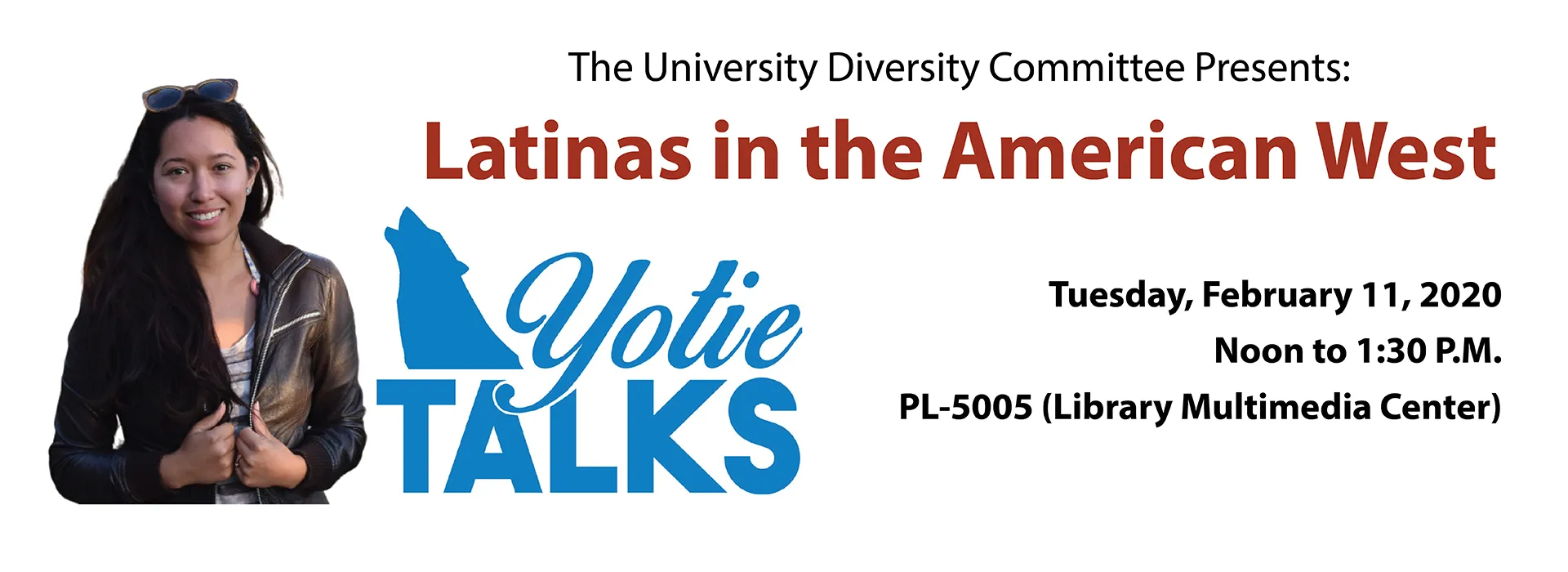Joe Gutierrez Office of Strategic Communication (909) 537-5007 joeg@csusb.edu

Vanessa Ovalle Perez, Cal State San Bernardino assistant professor of English, will explore the political, social and literary impact of poetry by Latinas in California Spanish-language newspapers during the 19th century at Cal State San Bernardino’s Yotie Talk event.
The talk, titled “Latinas in the American West,” will take place Tuesday, Feb. 11, in the John M. Pfau Library Multimedia Center (PL-5005) at noon. The talk, which is presented by CSUSB’s University Diversity Committee, is free and open to the public. Parking at CSUSB is $6.
During the talk, Perez, who recently earned a doctorate in comparative literature and graduate certificate in gender studies from USC, will specifically focus on poetry to show how innovation in verse became a means for Latinas to dream of new ways of social being.
Perez teaches courses on poetry and Latinx literature at CSUSB. She also teaches a Prison Education Project course on writing by incarcerated authors at the California Rehabilitation Center, in collaboration with CSUSB interns and Alexandra Cavallaro, CSUSB English assistant professor who directs the university’s Center for the Study of Correctional Education.
Perez is currently working on a book project examining poetry published by Latinas in Spanish-language newspapers of Alta California in the period after the Mexican-American War.
Her article, “Toasting México in the American West: Brindis Poems and Political Loyalties of Women’s Mexican Patriotic Clubs,” is available in Letras Femeninas and her podcast on the topic of Latina dedication poetry is available on the C19 Podcast via Soundcloud.
For more information, contact Robie Madrigal, Pfau Library, at rmadriga@csusd.edu or (909) 537-5104.
Abstract from Perez:
Some poetic forms that were popular among these poetisas included: the brindis, or toast, and the dedication poem. It is through formal innovation that the brindis and dedication poems stage a performance of women’s intimacy, cultural allegiance, and poetic genius for their respective reading audiences. Brindis were performed in verse by women in the Southwest as part of Mexican Patriotic Club celebrations in 1865, then transcribed and printed in newspapers. The toasts were crafted in protest of the French Intervention in Mexico and had a strong anti-imperialist sentiment. Dedication poems were also a popular form, and I will explore one transnational exchange between Carlota Gutierrez of San Francisco and Amelia Denis of Panama from 1875 to 1876. These women deeply respected each other’s craft and dreamt of a shared psychic and poetic connection across the hemisphere. I will conclude my presentation by focusing on a poet known only as “Josefina” who was accused of being a “Josefino” in a salacious review of her poetry in 1876. I see this case as a flashpoint for thinking through questions of culture, gender, and authorship in the nineteenth-century press.